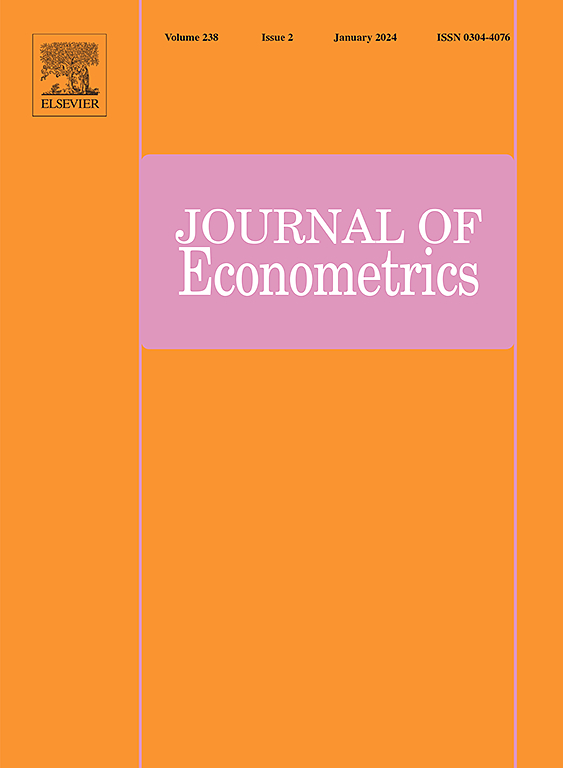Estimation of continuous-time linear DSGE models from discrete-time measurements
IF 9.9
3区 经济学
Q1 ECONOMICS
引用次数: 0
Abstract
We provide a general state space framework for estimation of the parameters of continuous-time linear DSGE models from discrete-time data. Our approach relies on the exact discrete-time representation of the equilibrium dynamics, hence avoiding discretization errors. We construct the exact likelihood for data sampled either as stocks or flows, based on the Kalman filter, and provide necessary and sufficient conditions for local identification of the frequency-invariant structural parameters of the underlying continuous-time model. We recover the unobserved structural shocks at measurement times from the reduced-form residuals in the state space representation by exploiting the underlying causal links implied by the economic model. We illustrate our approach using an off-the-shelf real business cycle model. Extensive Monte Carlo experiments show that the finite sample properties of our estimator are superior to those of an estimator relying on a naive Euler–Maruyama discretization of the economic model. In an application to postwar U.S. macroeconomic data, we estimate the model using series sampled at mixed frequencies, and combinations of series sampled as stocks and flows, and we provide a historical decomposition of the effects of shocks on observables into those stemming from structural supply and demand shocks.
从离散时间测量估计连续时间线性 DSGE 模型
我们提供了一个通用状态空间框架,用于从离散时间数据中估计连续时间线性 DSGE 模型的参数。我们的方法依赖于均衡动态的精确离散时间表示,从而避免了离散化误差。我们以卡尔曼滤波器为基础,构建了存量或流量采样数据的精确似然,并提供了对基础连续时间模型的频率不变结构参数进行局部识别的必要条件和充分条件。我们利用经济模型隐含的基本因果联系,从状态空间表示中的简化残差恢复测量时间的未观测结构冲击。我们使用一个现成的实际商业周期模型来说明我们的方法。广泛的蒙特卡罗实验表明,我们的估计方法的有限样本特性优于依赖经济模型的天真欧拉-马鲁山离散化的估计方法。在对战后美国宏观经济数据的应用中,我们使用以混合频率采样的序列以及以存量和流量采样的序列组合对模型进行了估计,并将冲击对可观测变量的影响分解为结构性供给冲击和需求冲击所产生的影响。
本文章由计算机程序翻译,如有差异,请以英文原文为准。
求助全文
约1分钟内获得全文
求助全文
来源期刊

Journal of Econometrics
社会科学-数学跨学科应用
CiteScore
8.60
自引率
1.60%
发文量
220
审稿时长
3-8 weeks
期刊介绍:
The Journal of Econometrics serves as an outlet for important, high quality, new research in both theoretical and applied econometrics. The scope of the Journal includes papers dealing with identification, estimation, testing, decision, and prediction issues encountered in economic research. Classical Bayesian statistics, and machine learning methods, are decidedly within the range of the Journal''s interests. The Annals of Econometrics is a supplement to the Journal of Econometrics.
 求助内容:
求助内容: 应助结果提醒方式:
应助结果提醒方式:


